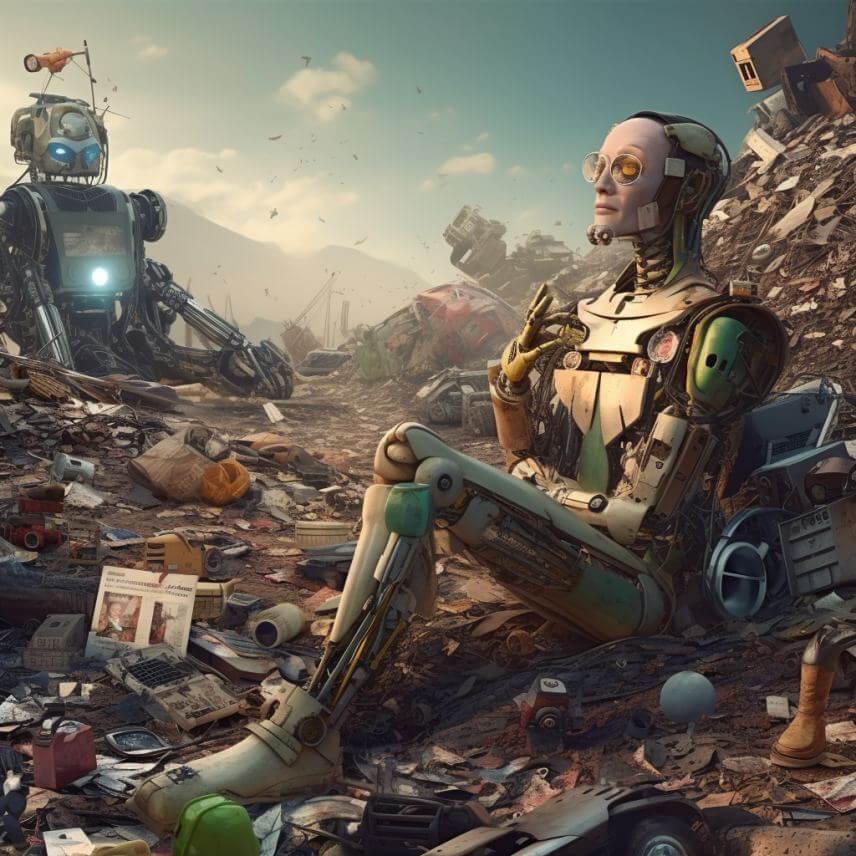In artificial intelligence (AI), China continues to make significant strides, with its AI foundation models finding an increasingly diverse range of applications across industries and households. From optimizing mine production and aiding programmers in code development to accelerating drug research and development, the impact of these AI models is being felt nationwide.
Baidu’s ERNIE 4.0: A glimpse into the future
At the annual Baidu World conference held in Beijing, the Chinese search engine and AI giant, Baidu unveiled the latest version of its AI foundation model, ERNIE 4.0. In a live demonstration that left attendees in awe, Baidu’s CEO, Robin Li, showcased the incredible capabilities of ERNIE 4.0. The AI chatbot was not only able to generate advertising materials, such as posters and marketing videos, within minutes but also tackled complex mathematical problems effortlessly.
What sets ERNIE 4.0 apart is its ability to engage in creative tasks. It was demonstrated by generating ideas for a novel, remembering previous instructions, and crafting sophisticated storylines by adding conflicts and characters. This versatility is a testament to the rapid advancement of AI technology.
Baidu’s integration of AI into everyday life
Robin Li announced Baidu’s ambitious plans to integrate AI technology into everyday life. This includes incorporating AI into the company’s search engine, maps, and cloud-drive services, as well as enhancing its business intelligence offerings for enterprise customers. Baidu’s vision is to make AI an integral part of the user experience, revolutionizing how people interact with technology.
AI empowers champion diver Quan Hongchan
During the conference, teenage champion diver Quan Hongchan highlighted how Baidu’s AI technology has practical applications in sports, specifically diving. She explained how the AI-based diving auxiliary training system refines a diver’s movements during daily training, providing invaluable coaching support. This example showcases the potential for AI to enhance performance and training in various sports and disciplines.
AI-powered intelligent driving
Baidu’s foundation model extends its capabilities to the automotive industry by enhancing the intelligent driving capabilities of cars. This includes equipping vehicles with self-learning and memory functions, which, in turn, modify human-car interactions and improve the overall user experience. The integration of AI into the automotive sector has the potential to revolutionize transportation, making it safer and more efficient.
AI foundation models: Driving new industrialization
The applications of AI foundation models are not limited to a single sector. These models are becoming a driving force in new industrialization, spanning manufacturing, energy, electric power, the chemical industry, and transportation. The versatility and adaptability of AI foundation models are evident in their widespread adoption across various domains.
China’s vision for AI and digital transformation
Tao Qing, spokesperson for the Ministry of Industry and Information Technology, emphasized China’s commitment to promoting the digital transformation of manufacturing and the innovative application of artificial intelligence. This vision aligns with the country’s broader strategy to harness technology for economic growth and development.
The shift towards AI ecosystems
Huang Tiejun, director of the Beijing Academy of Artificial Intelligence, highlighted an emerging trend in the AI landscape. The competitive pattern of AI foundation models is transitioning from technology-centric to application-centric and eventually to ecosystem development. Companies like Huawei, Baidu, Ant Group, and Alibaba Cloud are actively seeking development partners to build a robust AI foundation model ecosystem. This shift reflects the importance of collaboration and the creation of synergistic AI environments.
Tencent’s collaborative approach
Tencent, a key player in the AI field, has been at the forefront of ecosystem development. The company has partnered with 11,000 ecological partners to launch industry solutions that cover over 100 industrial scenarios. This collaborative approach underscores the significance of forging alliances and pooling resources to harness the full potential of AI.
Empowering everyone through AI
As foundation models open up and AI technology becomes more widespread, He Junjie, senior vice president of Baidu, envisions a future where AI empowers everyone. People will be liberated from tedious tasks and enabled to engage in more valuable and creative activities. This democratization of AI can potentially transform society and improve the quality of life for individuals across the board.
China’s AI foundation models are ushering in a new era of innovation and transformation. From creative problem-solving to sports training and intelligent driving, these models permeate diverse industries and sectors. The vision for AI in China extends beyond technological advancement; it encompasses the creation of ecosystems that foster collaboration and innovation. As AI continues to evolve, its integration into everyday life promises to enhance human capabilities and redefine the possibilities of the future.





